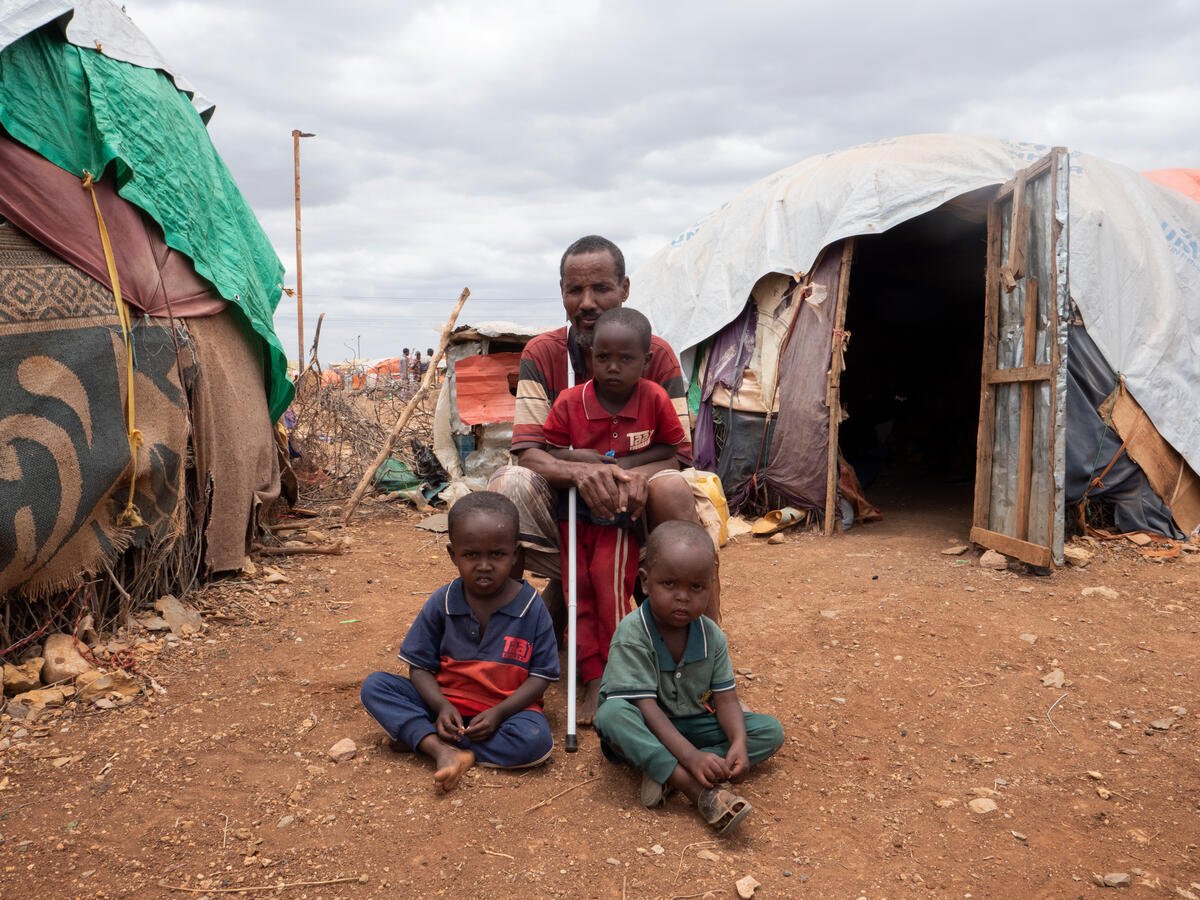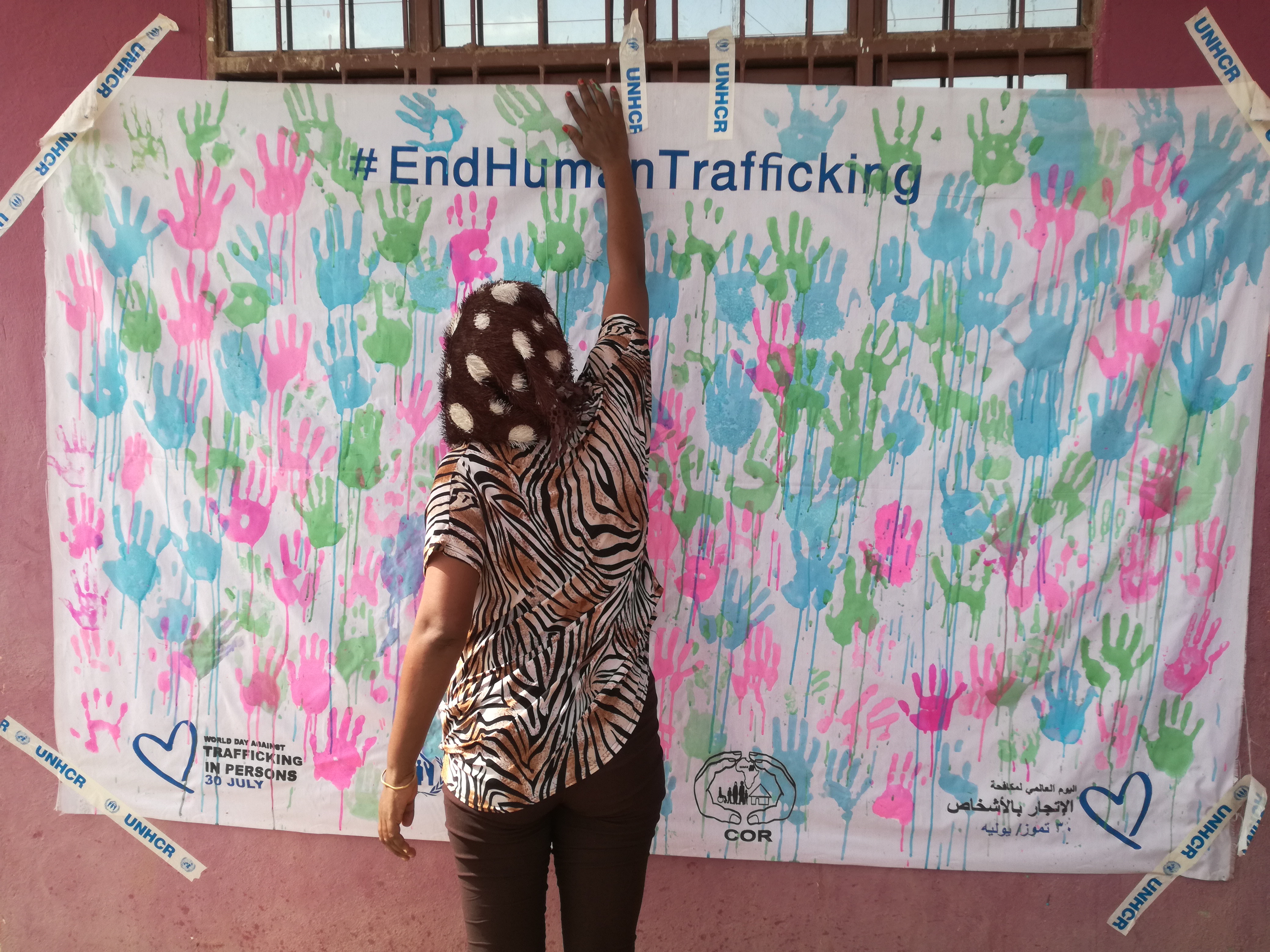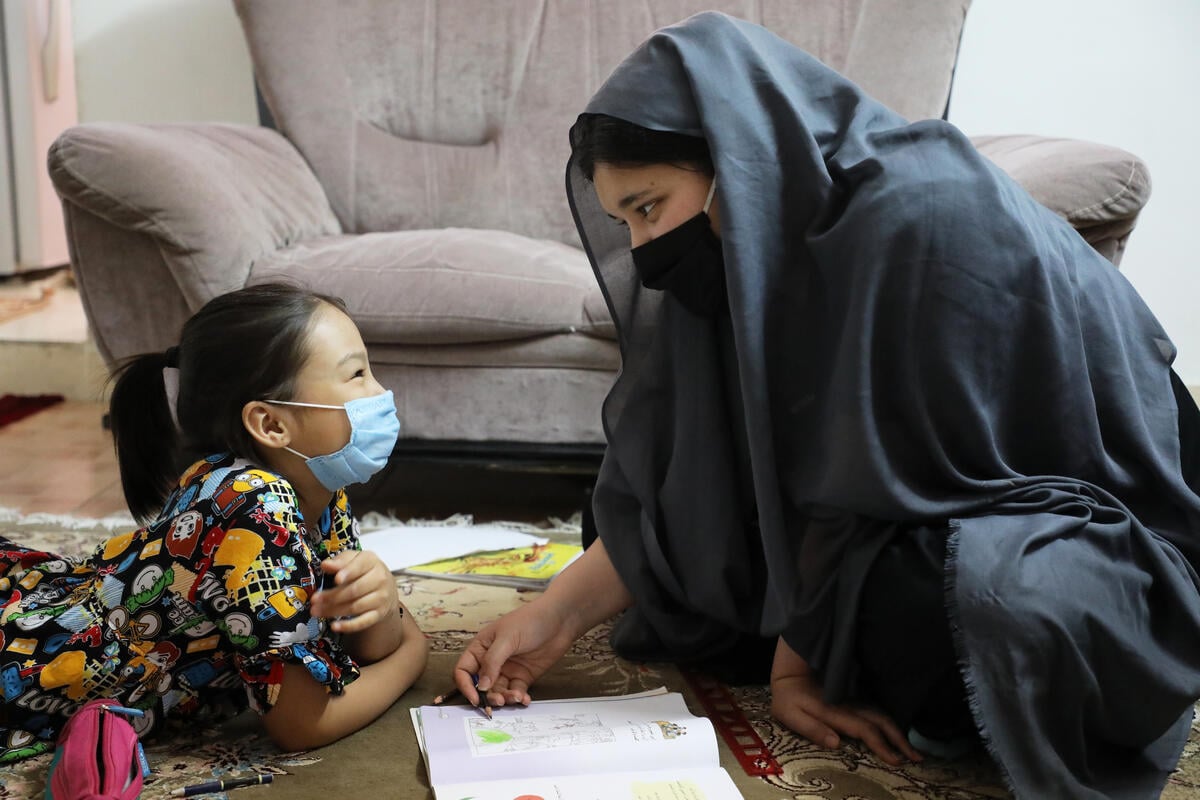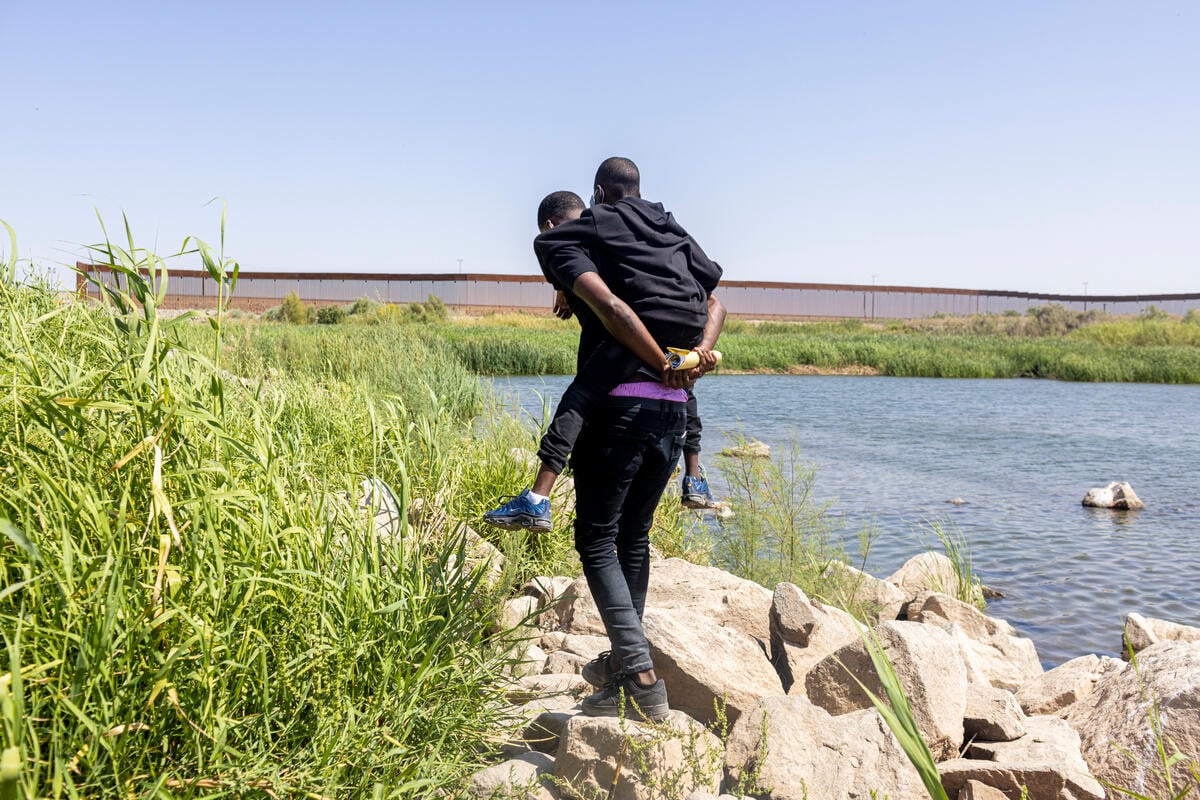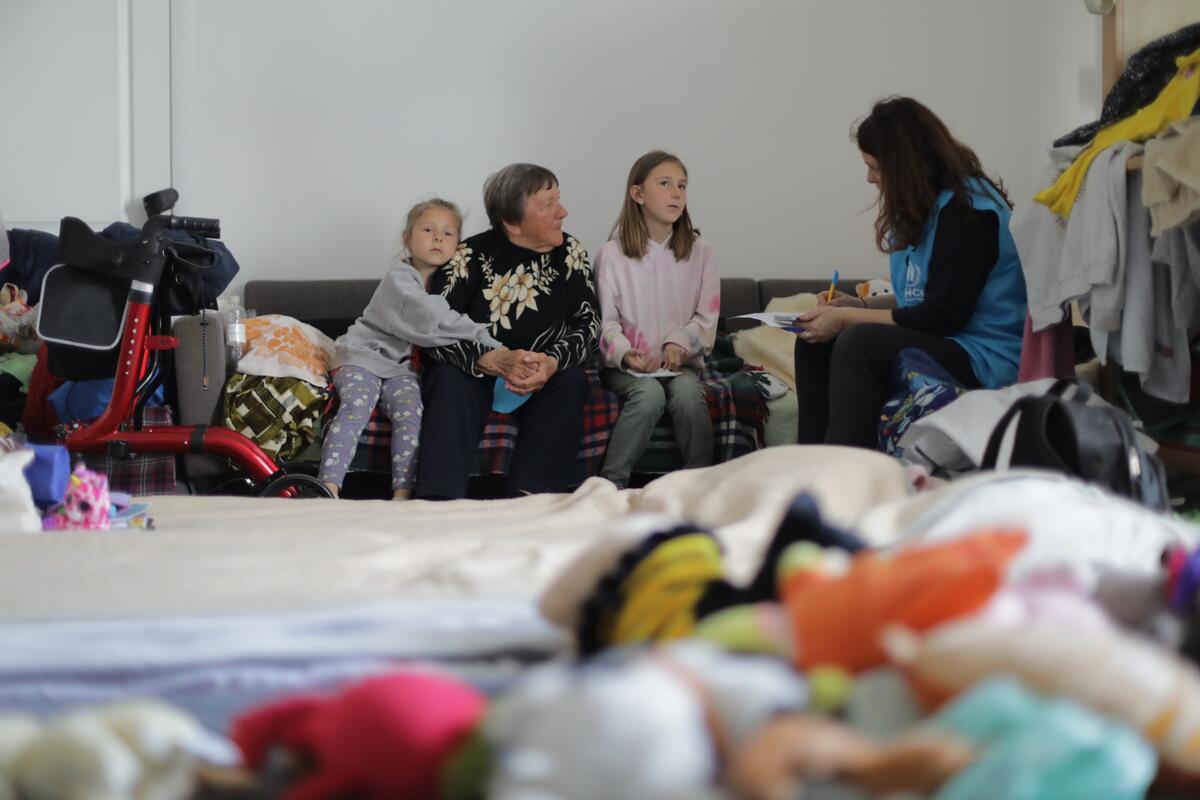UNHCR to resume protection activities in South Darfur
UNHCR to resume protection activities in South Darfur

EL GENEINA, Sudan, Nov 23 (UNHCR) - The Sudanese government has allowed the UN refugee agency to resume activities in South Darfur and to start work in North Darfur amid continuing efforts to ensure "protection by presence" in West Darfur. These three provinces make up the strife-torn Darfur region of western Sudan, where villagers say attacks by Janjaweed militia are persisting.
On November 11, three UNHCR staff members in South Darfur were temporarily relocated to West Darfur after they had been restricted to Nyala by Sudanese authorities and were prevented from carrying out their protection work for the area's displaced people.
Since then, UNHCR has received a response from the Sudanese authorities, welcoming the agency to resume its protection work in South Darfur and to start activities in North Darfur. The agency will mobilise its staff to return to Nyala in the coming days.
In West Darfur, UNHCR teams have resumed regular field missions to villages and settlements of displaced persons, especially near the border with Chad, since some security restrictions were lifted two weeks ago.
"We are more and more present on the ground, especially in remote places," said UNHCR team leader in Darfur, Laurens Jolles. "It seems that our regular missions and presence in some areas are starting to make a difference in the sense that we notice fewer incidents linked to violence, at least in those areas."
The conflict in Darfur that started in early 2003 has displaced an estimated 1.6 million people within Darfur and driven some 200,000 others into neighbouring Chad.
In West Darfur, "the villagers and displaced persons have stressed to UNHCR the importance of regular visits by international agencies, which they say provide reassurance and have helped to improve security," said UNHCR spokesman Ron Redmond at a press briefing in Geneva on Tuesday.
The refugee agency on Tuesday sent a team to Masteri village, the fifth visit in 10 days. The village remains tense after an attack on October 10 attributed to rebel groups by the local authorities, and since then, villagers have reported hearing regular gunfire at night.
They also told UNHCR that they do not feel safe going to their fields for fear of beatings and rapes by the Janjaweed. This is of great concern to them as they mainly depend on agricultural activities. The sheiks said that on the first day of Eid, Janjaweed militia wearing uniforms came to Masteri and stole 20 cows. UNHCR recorded other incidents that occurred in the past 10 days, such as the destruction of two wells and a water pump. Last Friday, a man and his son were beaten up by Janjaweed militia as they went outside the town to collect wooden poles to strengthen their hut. The man was hit in the head with a sharp object and was later transported to the clinic in Masteri.
UNHCR plans to send another mission to Masteri later this week to ensure a regular presence in the town and to monitor the security situation. "We believe that regular visits will continue to build confidence among the population, which might prevent further departures to Chad," said Redmond.
Similar security concerns emerge elsewhere in West Darfur. On Sunday, sheiks in Bangadid village, north-west of El Geneina, told a visiting UNHCR team that nomadic tribesmen stole 150 goats and sheep from a nearby village. They also reported that armed men attacked a woman in what seemed to be a robbery last week, and a separate incident where a woman was dragged out of her hut and raped by Janjaweed militia in September.
There is no police presence in Bangadid village but a military base with 20 soldiers was established in mid-November. The sheiks reported that the security situation has improved in Bangadid since they arrived but that they do not have the necessary resources, like cars, for establishing law and order in villages surrounding Bangadid.
Villagers said UNHCR is the only international agency to have visited them and stressed that they felt more reassured in terms of safety because of an international presence.
In Garsila, UNHCR partner Intersos has just started hygiene promotion activities including camp cleanups for the 24,000 internally displaced people in Dala camp just outside the town. Intersos has also recently started children's clubs offering recreation such as volleyball and soccer as well as school activities for some 1,400 children. Displaced persons interviewed by UNHCR in the camp said they feel much safer since Intersos developed these activities and since their international and local staff regularly come to the camp. They say they are once again venturing as much as 2-3 km away from the camp to collect wood, something that was impossible until a month ago because of possible attacks by Janjaweed militia.
One of the camp's main leaders confirmed that there have been regular attacks by Janjaweed militia in the camp in recent months. He described men wearing military uniforms on horses and camels, who raided houses and stole belongings.
Another problem frequently reported is the destruction of crops by grazing cattle belonging to Arab nomadic tribes. It is currently harvest season in Darfur, but villagers in several locations were unable to bring in their crops before they were destroyed. In previous years, there has been a customary understanding for coexistence for grazing cattle and agricultural crops, but these agreements do not seem to be respected anymore.
In Mangarsa village (30 km south of Habila), which was visited by a UNHCR team last week, the sheiks reported that at the end of October, 10 fields were destroyed by the animals of nomadic tribes. The sheiks explained that there is a traditional rule stating that animals cannot graze in any cropping area from the start of the planting season (approximately July) until February 28 the following year. Those found violating this rule used to be fined. However, the sheiks reported that since the beginning of the Darfur conflict in 2003, the authorities have not taken any action against violators of this rule.
Sheiks in Bangadid also reported crop destruction in the area, saying that in the past two years, some of the Arab tribesmen have started to appear in military uniforms and carrying weapons, arriving with their cattle in groups of four or five and threatening villagers who might protest the destruction of the crops. Since their crops were destroyed, the primary means of subsistence in this village has been collecting firewood to make charcoal for sale in El Geneina. The problem of crop destruction was also reported to UNHCR in Masteri.




